On the coattails of his recent success with The Amityville Murders, Director Daniel Farrands presents The Haunting of Sharon Tate starring Hilary Duff. This bizarre spin on the Manson Family murders of 50 years ago, a fictional retelling of real-life events, arrives to select theaters, as well as On Demand, on Friday, April 5, 2019, thanks to Saban Films.
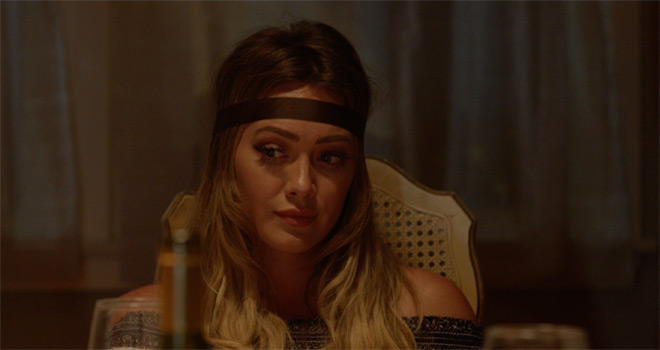
The location, 10050 Cielo Drive, just north of Beverly Hills in sunny California. Actress Sharon Tate (Duff: A Cinderella Story 2004, Lizzie McGuire series), eight months pregnant with her first child, returns home after six months abroad with her husband, Director Roman Polanski. At her side is her best friend, a former beau named Jay Sebring (Jonathan Bennett: Mean Girls 2004, Cake Wars series). Once inside, the pair are welcomed by house-sitters Wojciech Frykowski (Pawel Szajda: Under the Tuscan Sun 2003, Imperium 2016), a friend of Roman’s, and Abigail Folger (Lydia Hearst: #Horror 2015, Z Nation series).
Sharon soon learns that while she was away, Wojciech and Gibby were at play and much has changed around the estate. Perhaps one of the better alterations is the addition of Steven Parent (Ryan Cargill: WITS Academy series, Jax + James series), a soft-spoken, hard working young student who is now caretaker of the property. Otherwise, rumor has it that there have been parties with unseemly types in and out of the house, and Sharon finds herself growing ill at ease in her own home. In fact, when she discovers that a young man named Charlie (Ben Mellish: Elephants 2018, The Freedom Procedure short 2018) has been ringing the doorbell of the gated property and leaving packages, she grows unnerved.
The situation soon devolves as pregnant Sharon begins to experience terrifying nightmares, ones that depict a man (Tyler Johnson: Gossip Girl series, Men in Black 3 2012) and two women — portrayed by Bella Popa (The Flying Machine short 2003, The Institute 2017) and Fivel Stewart (Pit Fighter 2005, Hansel & Gretel: Warriors of Witchcraft 2013) — torturing her and her friends. As the horrifying dreams continue to plague her, she grows more frantic about her future. As someone who believes that her whole life has already been predestined by fate, are her dreams a prophecy meant to forewarn her, or is she merely panicking from exhaustion and stress?
Clocking in at 90 minutes, The Haunting of Sharon Tate was written and directed by the prolific Farrands (Crystal Lake Memories: The Complete History of Friday the 13th documentary 2013, The Amityville Murders 2018), and is one entry into a series that references true crime — the first being 2018’s The Amityville Murders and the next being the upcoming The Murder of Nicole Brown Simpson. Billed as Horror, this is more accurately a True Crime/Drama presented in the form of a Thriller. It’s important to distinguish that, where The Amityville Murders went the full-blown Supernatural Horror route and took creative liberties to weave a unique twist, The Haunting of Sharon Tate is more of a retelling with a “what if” tossed in for good measure.
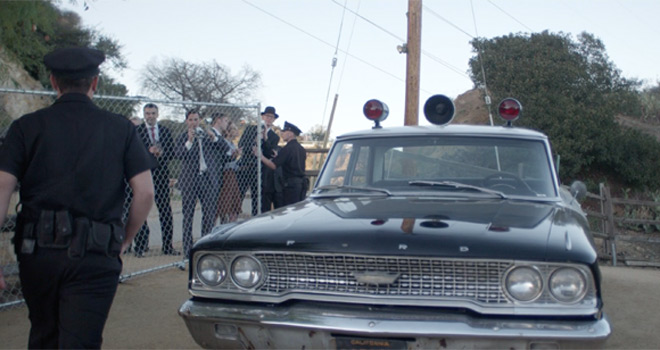
Controversial from the get-go, The Haunting of Sharon Tate is a mixed bag of successes, a few failures, and a whole lot of sensationalism. However, one thing that cannot be ignored is the film’s exceptional original score that is far eerier than anything that happens on screen. While what happens is certainly horrifying, it’s not because the film is scary or haunting, but rather, because this is based on a true crime and real lives were lost. In fact, sensitive viewers are apt to find themselves tearing up when Duff, as Tate, pleads for the life of her unborn child.
Speaking of, let’s face it: Hilary Duff is a woman who will always have haters. Why? We can’t say because she has always been likable. That said, she does a good job in her role here, save one complaint: her non-distinct accent comes and goes. Presumably she is trying to mimic Tate, who was born in Texas, though, ironically, Duff was too. Therefore, the accent here is a curious addition that seems to disappear when she’s upset, which degrades all of her hard work. Aside from this, she is poised and panicked where necessary, and proves herself a solid actress. Again, when she gets hysterical and pleads for the life of her unborn child, it’s hard to keep a dry eye.
In their supporting roles, her cast-mates also fair well. Bennett paints the picture of a kind, caring Sebring who is trying his best to be supportive of his friend through a rough patch, while Szajda’s Wojciech and Hearst’s Gibby are not quite as sympathetic. They toe the line between unwanted house-guests who are leeching off the good nature of Tate, and well-intentioned friends who have simply overstayed their welcome. It is Cargill’s Steven who is perhaps the most universally likable, a soft-spoken young man who simply tries his best to do right by each person he encounters. Oh, and the dog? His name is Doctor Sapirstein. (We see what you did there, Farrands!)
The issues with the film are largely forgivable, save for its controversy. On-screen, there’s some CGI blood splatter that really degrades the intensity of the scene in which it appears, though it doesn’t entirely cross into ridiculous, cheese-fest territory. The attention to detail that is required to signal 1969, however, is lacking. While the film has some nostalgia, largely in its wardrobe and styling — and some cigarette smoking near pregnant Sharon — it in no way takes you back to the late 1960s.
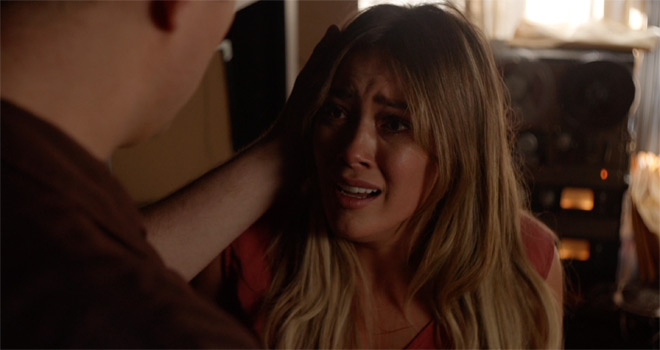
The Haunting of Sharon Tate seeks to question if we can alter our fates and, in turn, asks if through some twist, could Sharon Tate have survived the tragedies of August 8-9, 1969? This, we will never know. She was a real woman who touched real lives, and not just a fictional character in a Slasher film. Is it an enjoyable film? Well, it holds the viewer’s interest for its run-time, but it seems necessary to reiterate that this is a story involving real people who died in a truly horrific manner, whose deaths have already been exploited ad nauseum.
As The Haunting of Sharon Tate is not a unadulterated historical retelling of a crime, nor is it a supernatural bent on a real-life event, it sits in a strange sort of territory that feels, well, a bit exploitative — and the inclusion of a Charles Manson song (“Cease To Exist”) on the soundtrack does not help. Unsure how to feel, Cryptic Rock give The Haunting of Sharon Tate 3.5 of 5 stars.
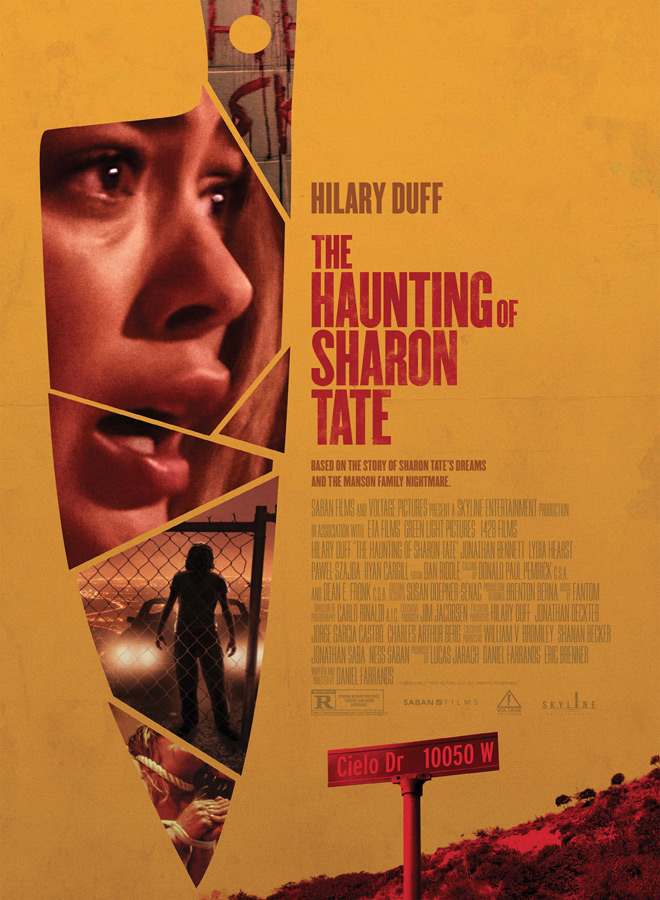

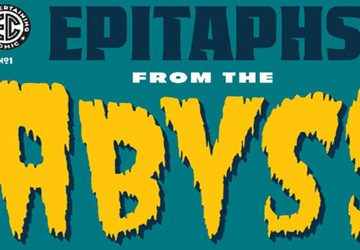
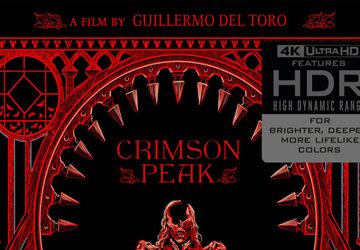


No comment